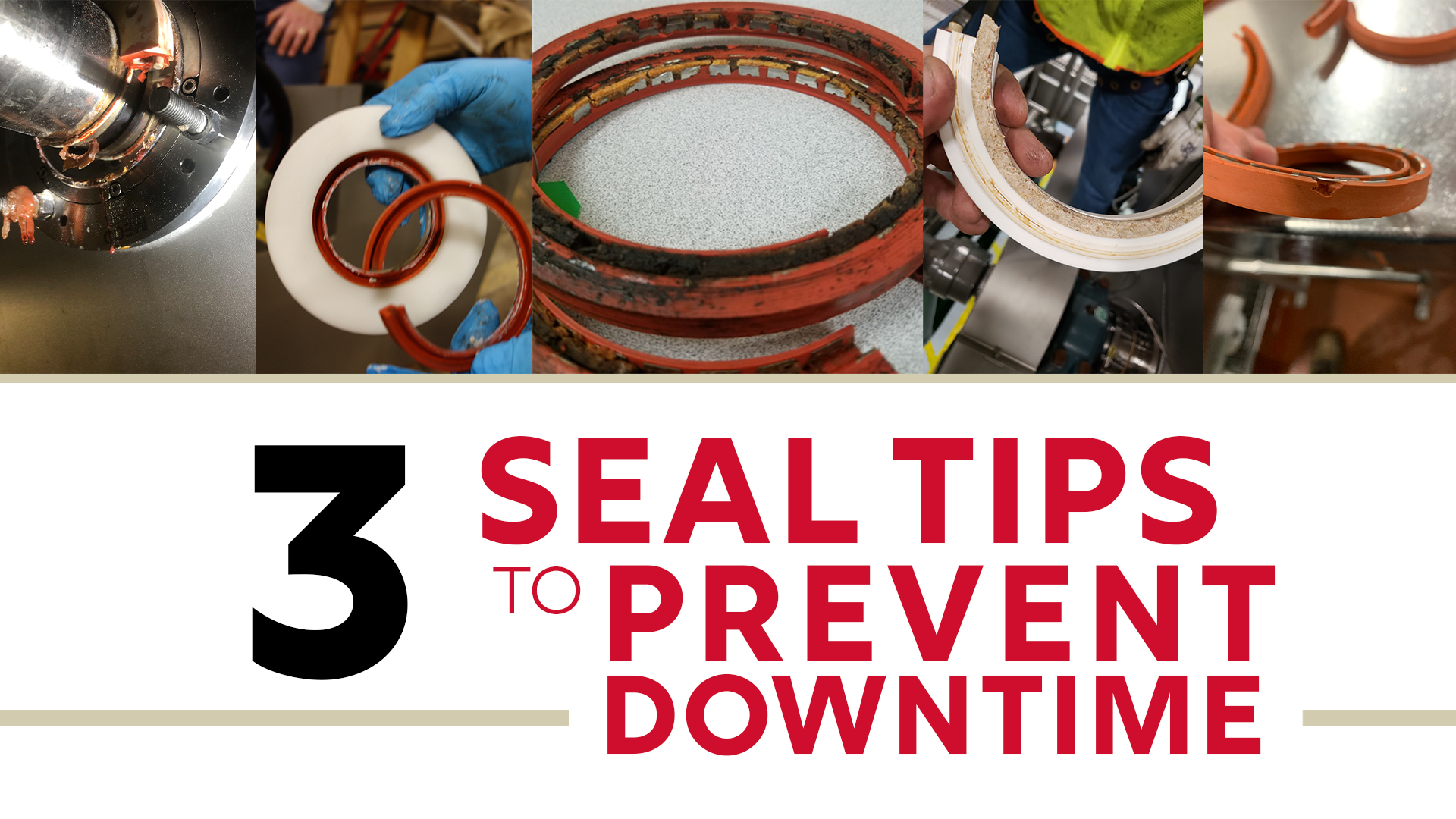
The Mepaco®’s Field Services and Engineering Team have been on hundreds of calls for all types of food processing equipment service. Seal issues are one of the common requests for service. Here’s the top 3 trouble signs for split seal types and how to troubleshoot repair.
The Trouble Signs:
- Product escapes or purges out of the seal
- Downstream food contamination
- Loss of vacuum
The Possible Problem:
- Grooved or broken shaft
- A broken seal
- Missing packing
Grooved or Broken Shaft
A worn shaft may cause a loss of vacuum in your equipment. Depending on the space available and the extent of the damage, a worn shaft may be repaired on-site. Ignoring a grooved shaft
can lead to a broken shaft resulting in a catastrophic failure. The timeline to order a replacement shaft may take weeks. Even if there is an extra shaft in inventory, there is a minimum of two days of lost production to replace it. If you suspect a grooved shaft, call Mepaco®’s Field Services to troubleshoot the issue.
Worn
Seals and Missing Packing
Seals should be checked for wear and sanitized daily. Seals should also be part of your preventative maintenance program, with two to four extra seals in your parts inventory, depending on usage. Changing the seal during scheduled times will help save lost production; instead of shutting down production to replace a seal.
Proper Installation
Seals must be correctly installed with recommended packing. Check to make sure that the seal housing is within tolerance. Revisit the documentation for seal installation instructions.
If you have new staff, ask for a training session by Mepaco®’s Field Services experts to have them watch and advise on seal installation and maintenance.
Mepaco® equipment features one of three types of seals: Split Seal, Air-Purge Seal, and Mechanical Seal. Each seal is specified for the best use in the type of processing application.
Split Seal: A split seal provides ease of removal and installation. The construction is made up of rubber and metal reinforcement. It can be specified for a variety of applications. It is easy to disassemble
for sanitation and holds up to rigorous COP (clean-out-of-place) processes.
Air-purge Seal: These seals are often specified for applications with high food safety risks and abrasive food product situations. The internal components of the seal rotate with the shaft, so there are no
typical issues with worn shafts or missing packing. These seals are engineered to reduce maintenance and sanitation costs.
Mechanical Seal: This type of seal is suitable for applications with coarse, gritty food product. These seals are precision-installed and are not forgiving with tolerance. Mechanical seals are engineered
for CIP (clean-in-place) sanitation processes.
Contact Mepaco®’s Field Services for answers to your current seal issues, request an audit, or schedule a consultation for a seal solution to fit your application.
